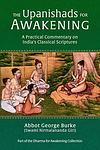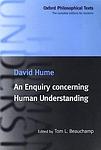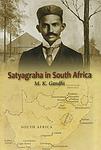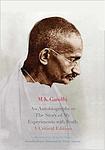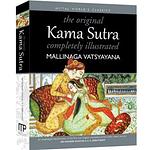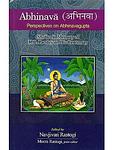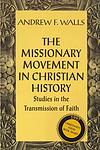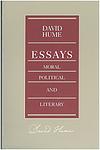The Greatest Scottish, Indian "Nonfiction" Books of All Time
Click to learn how this list is calculated.
This list represents a comprehensive and trusted collection of the greatest books. Developed through a specialized algorithm, it brings together 300 'best of' book lists to form a definitive guide to the world's most acclaimed books. For those interested in how these books are chosen, additional details can be found on the rankings page.
Genres
Countries
Date Range
Reading Statistics
Click the button below to see how many of these books you've read!
Download
If you're interested in downloading this list as a CSV file for use in a spreadsheet application, you can easily do so by clicking the button below. Please note that to ensure a manageable file size and faster download, the CSV will include details for only the first 500 books.
Download-
1. The Wealth of Nations by Adam Smith
This influential economic book presents a groundbreaking theory that argues for free market economies. The author posits that individuals acting in their own self-interest within a system of natural liberty will result in societal benefit, a concept often referred to as the "invisible hand" theory. The book also critiques mercantilism and explores concepts such as the division of labor, productivity, and free markets. It is widely considered one of the foundational texts in the field of economics.
-
2. Upanishads by Hindu scripture
The book is a comprehensive compilation of ancient Hindu scriptures known as the Upanishads, which are fundamental to understanding the core philosophies of Hinduism. The text delves into profound spiritual teachings and philosophical dialogues about the nature of reality, the self, and the universe, providing invaluable insights into concepts such as karma, reincarnation, moksha, and the ultimate truth of existence. It serves as a guide to spiritual enlightenment and self-realization, offering timeless wisdom for introspection and personal growth.
-
3. An Enquiry Concerning Human Understanding by David Hume
This philosophical work explores the nature of human knowledge, arguing that all of our understanding comes from experience rather than innate ideas. The author challenges the idea of causality, suggesting that our belief in cause and effect is based on habit rather than logical reasoning. The book also discusses the limitations of human understanding, including the inability to fully comprehend the concept of God or the soul, and the impossibility of certain knowledge. The author's skepticism about traditional philosophical concepts has had a significant influence on later philosophers and the field of epistemology.
-
4. Satyagraha in South Africa by Gandhi
This book is a personal account of the author's experiences during the Indian struggle for civil rights in South Africa. It details the development and implementation of the concept of Satyagraha, or non-violent resistance, as a means of combating social injustice. The book provides a unique insight into the author's philosophies and strategies of peaceful protest, including his belief in the power of truth and the necessity of self-sacrifice in the fight against oppression.
-
5. Bhagavad Gita by Unknown
The book is a 700-verse Hindu scripture that is part of the Indian epic Mahabharata. It takes the form of a dialogue between Prince Arjuna and the god Krishna, who serves as his charioteer. On the battlefield of Kurukshetra, just as the war is about to begin, Arjuna is filled with doubt and moral dilemma about fighting in the battle. Krishna imparts spiritual wisdom and guidance to Arjuna, addressing his concerns and leading him through a profound discourse on various philosophical concepts, including the nature of life, the soul, and one's duties. The text covers topics such as righteousness, devotion, and the paths to spiritual liberation, ultimately encouraging Arjuna to rise to his duty as a warrior with the understanding that the true self is eternal and beyond physical conflict.
-
6. The Story Of My Experiments With Truth by Mahatma Gandhi
This book is an autobiography that details the personal journey of a prominent leader who played a key role in India's struggle for independence from British rule. It explores his philosophy of nonviolent resistance and truth, which he refers to as "Satyagraha," and traces his development from a young, unsure boy into a principled activist committed to social justice. The narrative delves into his experiments with diet, celibacy, and other personal challenges, reflecting his quest for self-improvement and moral integrity, which he believed were essential for political leadership and social reform.
-
7. Kama Sutra by Vātsyāyana
This ancient Indian text is a guide to virtuous and gracious living that discusses the nature of love, family life, and other aspects pertaining to pleasure-oriented faculties of human life. It is a comprehensive manual on the art of love and sexual behavior, providing detailed advice on courtship, marriage, and the act of lovemaking. The text, while often associated solely with sexual positions, covers a wide range of topics including the duties and privileges of a wife, advice for courtesans, and methods to attract others.
-
8. My Story by Kamala Das
"My Story" is an intimate memoir that delves into the life of a woman navigating the complexities of her existence in mid-20th century India. It candidly explores themes of love, marriage, and womanhood, as the author recounts her journey from a young girl to a renowned poet and writer. The narrative is marked by its honesty and emotional depth, addressing the author's unconventional choices and her search for personal freedom amidst the constraints of a traditional society. Her reflections on sexuality, fidelity, and the literary world offer a poignant look at the challenges faced by women in asserting their identity and creativity.
-
9. Resources, Values And Development by Amartya Sen
"Resources, Values, and Development" is a comprehensive examination of the interplay between the availability of resources, the values that guide their use, and the resulting impact on development. The book challenges traditional economic measures of development, such as GDP, and argues for a broader understanding that incorporates human welfare and freedom. It delves into the role of ethics in economics, the importance of individual capabilities, and the need for equity in the distribution of resources. The author's influential ideas on development economics and social choice theory are presented, advocating for a more humane and inclusive approach to economic development that prioritizes the enhancement of human lives over mere economic growth.
-
10. Abhinavagupta by Abhinavagupta
This book delves into the life and teachings of Abhinavagupta, a seminal figure in Indian philosophy and aesthetics. A scholar from the 10th century Kashmir, Abhinavagupta made significant contributions to the fields of philosophy, mysticism, and the arts. The text explores his works and thoughts within the framework of the non-dual Shaivism of Kashmir, highlighting his theories on aesthetics, particularly the concept of rasa in drama and literature. It provides a comprehensive analysis of his philosophical system, which integrates elements of Tantra, Krama, and Trika philosophies, offering insights into his profound understanding of human consciousness and the divine.
-
11. Development As Freedom by Amartya Sen
The book in question is a seminal work in the field of economics and development studies, which argues that true development is best understood as the process of expanding the real freedoms that people enjoy. It challenges traditional indicators of growth, such as GDP, suggesting that they fail to capture the essence of human well-being. Instead, it posits that development should be assessed by the range of choices available to individuals, including access to education, healthcare, and the ability to participate in the economic and political life of society. The author emphasizes the interdependence of various types of freedoms, from political rights to economic opportunities, and the role they play in empowering people to live the lives they value.
-
12. The Missionary Movement In Christian History by Andrew Walls
"The Missionary Movement in Christian History" explores the significant role of missionary activities in the spread and development of Christianity throughout history. The book examines how cultural exchanges influenced the practice and perception of Christianity in various contexts, highlighting the adaptability and transformation of Christian faith as it intersected with diverse cultures around the world. The author discusses the implications of these interactions for both the missionary movement and the broader historical and cultural developments, providing insights into the dynamic relationship between religion and cultural change.
-
13. Essays, Moral, Political, And Literary by David Hume
This collection of essays by the philosopher explores a range of topics across ethics, politics, and aesthetics. Written in a clear, conversational style, the essays examine human nature, the workings of government, economic theories, and the merits of refined taste, among other subjects. The author employs a skeptical approach to question traditional doctrines and suggests that politics and morals should be grounded in empirical observations of the world. The work reflects the Enlightenment spirit of rational inquiry and has been influential in the development of modern political philosophy and economic thought.
-
14. Essays Of Robert Louis Stevenson by Robert Louis Stevenson
This collection of essays offers a window into the mind of its renowned author, showcasing his wide-ranging interests, personal reflections, and literary prowess. The essays cover topics as diverse as travel, dreams, writing, and the complexities of human nature, all conveyed with the author's characteristic wit, eloquence, and insight. Through these pieces, readers are invited to ponder life's great questions and to appreciate the everyday wonders that the author observes with such keen perception and articulates with timeless grace.
-
15. Treatise on Electricity and Magnetism by James Clerk Maxwell
This seminal scientific work revolutionized the understanding of electricity and magnetism, providing a comprehensive mathematical framework for the interrelationship between these two forces. The book lays out the foundation of electromagnetic theory, introducing key concepts such as electromagnetic fields, electromagnetic waves and the speed of light. It also introduces the four fundamental equations, now named after the author, that describe how electric charges and currents create electric and magnetic fields.
-
16. Classic Crimes by William Roughead
"Classic Crimes" is a compelling collection of true crime essays that delve into notorious criminal cases in Scotland from the 17th to the early 20th century. Written by a prominent figure in the field of criminology, the book provides detailed accounts and analyses of various infamous crimes, including murder and scandal, exploring the legal proceedings and societal impacts of each case. The author's meticulous research and engaging narrative style bring these historical crimes to life, offering insights into the darker aspects of human nature and the evolving nature of criminal justice in Scotland.
-
17. Delhi by Khushwant Singh
"Delhi" by Khushwant Singh is a captivating exploration of the city's rich history, culture, and people. Through vivid anecdotes and personal experiences, the author paints a vivid picture of Delhi's transformation from ancient times to the present day. From the Mughal era to British rule, and the struggles of Partition, Singh delves into the city's tumultuous past while highlighting its enduring charm. With a blend of wit and nostalgia, this book offers readers a delightful journey through the vibrant streets, monuments, and diverse communities that make up the heart of Delhi.
-
18. Tall Tales And Wee Stories by Bill Connolly
"Tall Tales And Wee Stories" is a collection of humorous anecdotes and reflections from a beloved comedian's life and career. The book is a treasure trove of laughter, wisdom, and the occasional poignant moment, showcasing the author's storytelling prowess and unique perspective on life. Through a series of entertaining narratives, the reader is taken on a journey through the comedian's early days in show business, his observations on everyday absurdities, and his experiences on the road, all delivered with his signature wit and charm. This compilation serves as a celebration of a lifetime in comedy and an invitation to share in the joy of his uproarious adventures.
Reading Statistics
Click the button below to see how many of these books you've read!
Download
If you're interested in downloading this list as a CSV file for use in a spreadsheet application, you can easily do so by clicking the button below. Please note that to ensure a manageable file size and faster download, the CSV will include details for only the first 500 books.
Download
